Saturday Feb 21, 2026
Saturday Feb 21, 2026
Saturday, 21 September 2019 00:10 - - {{hitsCtrl.values.hits}}
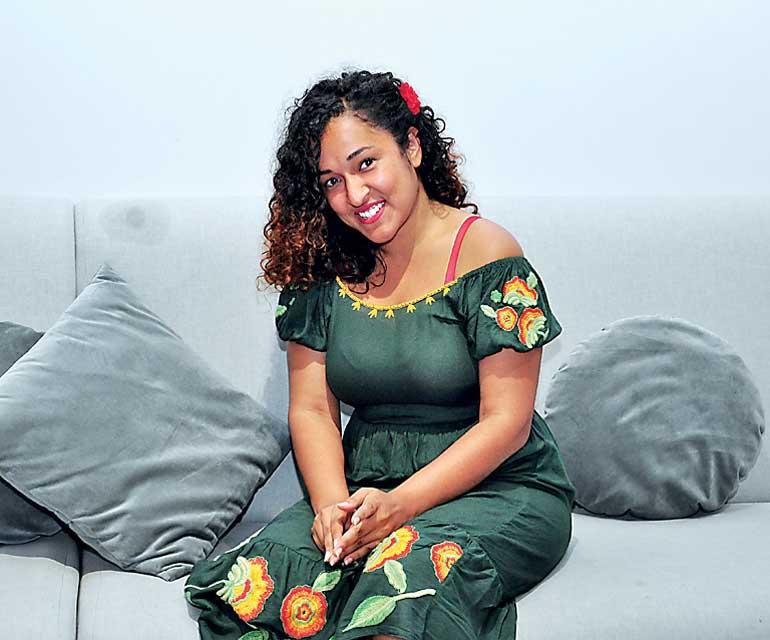
Nupur Saraswat is a female poet hailing from India, who is currently residing in Singapore. She is a writer and a performance poet and uses spoken word, theatre, and music in her performances to tell personal stories of love, identity and Sanskars.
Nupur is a passionate stage performer, who brings an electric energy on stage along with her expressive words, and a performance style that is intimate and emotional.
She has taken her performance and workshops to 16 cities in seven countries in Asia and Europe. She has collaborated with musicians like Sofia Akhtar, performed on stages like UN Women, TEDx, and various summits and schools. Usually known as the girl with a flower in her hair, this is Nupur’s second visit to Sri Lanka and her first time performing in Colombo.
At first Nupur seemed shy and awkward, but when she took to stage, she succumbed to the emotions flowing through her words, and captivated her audience so well, we felt every emotion she was feeling.
The sorrow in her words, the love in her heart, and the weight of her pain was embedded in her performance. She spoke, she trotted, she sang and she swayed and took us along on a ride. Weekend FT got a chance to chat to her about herself and her poetry.
Following are excerpts:
By Ruwandi Gamage
Q: What brings you to Sri Lanka?
A: I made my first solo visit to Sri Lanka, four years ago. Since then I have been to so many different places in the world, but Sri Lanka holds this special place in my heart, for the way it made me feel so completely independent and happy. So, being back is really like re-visiting a part of myself that I admired and might have lost along the way.
Q: How did you get into writing and how did you progress into performance poetry?
A: I have been writing since before I can remember. The words, they lived in me and came out to respond and to provoke. Then, there was theatre; it was compelling, beckoning, consuming. Then came spoken word, giving structure, meaning, and reverence.
Soon after there was music – bewildering, standing over me, it didn’t live in me, but it filled me quite to the brim. All of this, though, slowly came together quite naturally, to give me ‘Theatrical Poetry’, and I have been performing it professionally for the last six months.
Q: Can you name your favourite poets, and possibly a poem that inspires you?
A: I think a lot of my poetry is inspired by a mix of Singaporean, American, and Indian poets. There is of course Warsan Shire, Sylvia Plath, EE Cummings, Maya Angelou, Leonard Cohen, but I’d also like to mention Deborah Emmanuel, and Natalie Wang. A poem that is sort of stuck in my mind right now is ‘Poet, Lover, and Birdwatcher’ by Nissim Ezekiel.
Q: Where can we read your work?
A: A better idea is to watch my stuff, given I am strictly a stage performance poet. However, you can find a playlist of videos on the YouTube channel, ‘beasts bedandbattlefield’. See https://www.youtube.com/playlist?list=PLCGwpLGqxU1J-vGwpd8f-vYrbznYektj5 or follow me on Instagram under the handle ‘sanskari_grl’.
Q: What is your most memorable experience as a performance poet?
A: I think touring Asia and Europe in 2017 with my stage partner Kate Black-Regan was one of the landmark journeys I have made in my life. It was so challenging logistically, and it has made me a better-rounded artist, who is able to do the other functions of the industry such as liaising, marketing, and stage direction. This I have found has taught me skills I would have had no other way of learning.
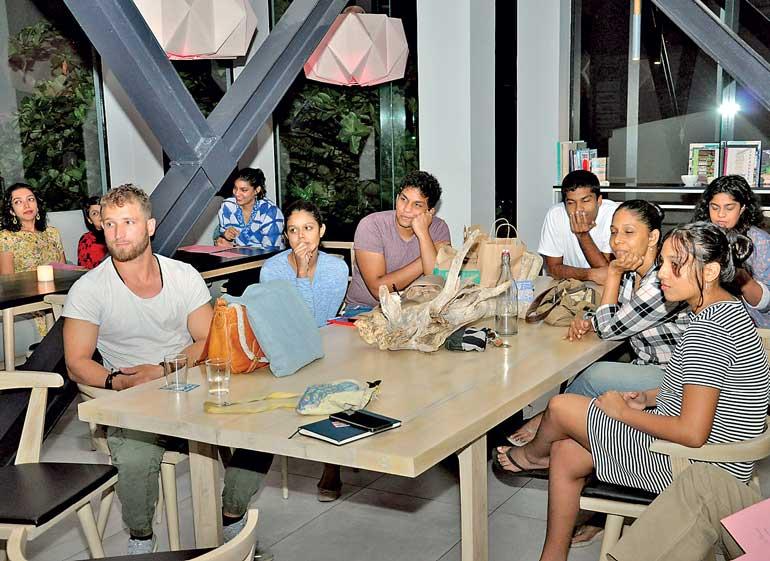
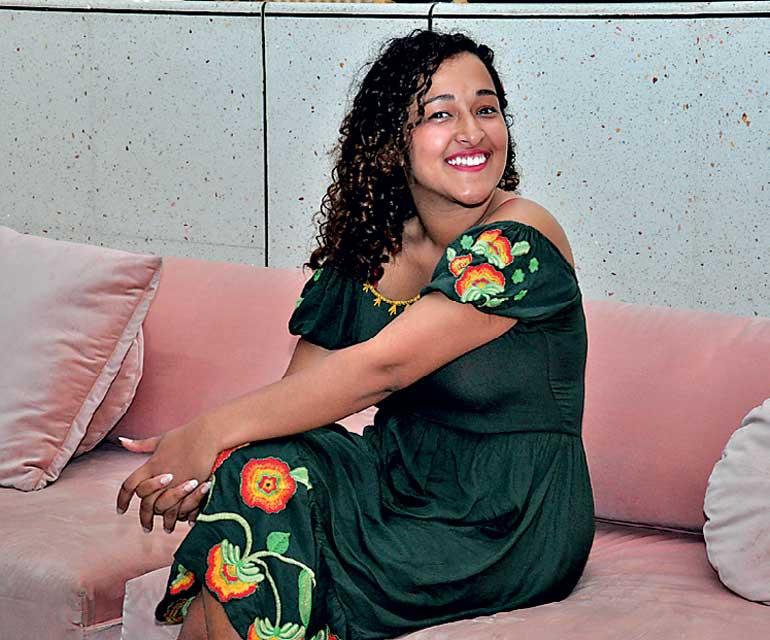
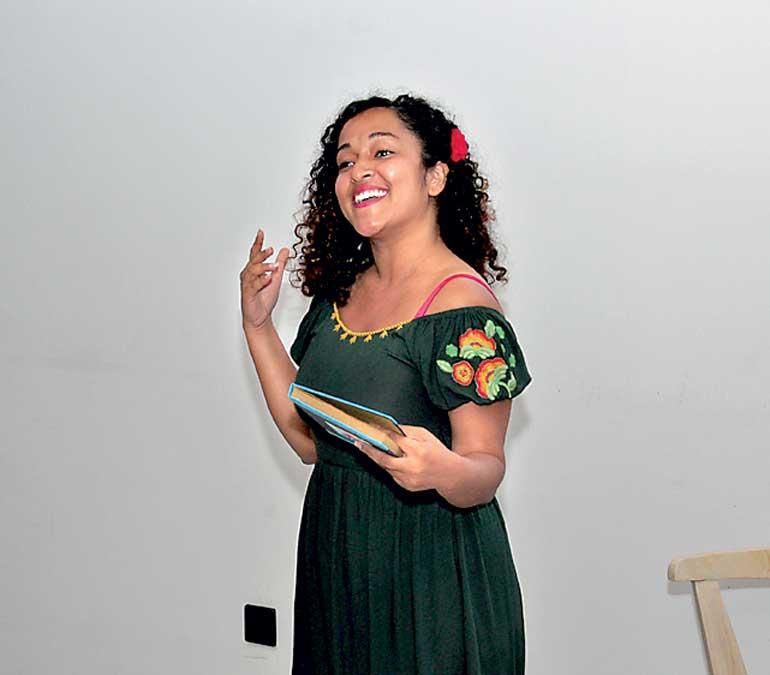
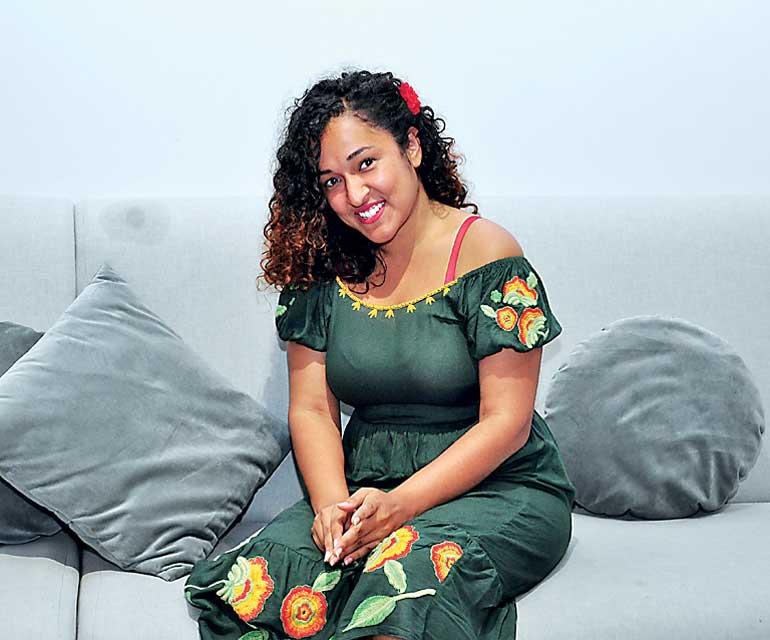
Nupur Saraswat
Q: You have used your voice and your words to battle unsettling traditions; what is your message to the youth, especially to young women, on doing the same?
A: I think the truest message I can give is to un-box yourself. When people ask you what you write/ speak about, don’t try to mould your answers to what you think is popular and trending. Write from and to your lived experiences. Before trying to give voice to people who you think don’t have a voice, give those unspoken undocumented desires within you a voice. Always start with yourself. Don’t try to do it all. You’re not an activist. But if your art can activate, and that’s a bonus.
Q: You use poetry as a weapon against body-shaming, patriarchy and gender roles. What made you take on these issues?
A: I think body-shaming, fighting patriarchy, and battle with gender roles has been deeply rooted with my identity. The acceptance of my body, my colour, my sexuality, my loves and friendships has been deeply political. My personal is my political. My friends are my allies. With this knowledge I know that my beliefs have to be as much performative as they are idealistic, even if for the sake of standing by them and showing so many other brown girls around me that this is possible.
Q: What is the advice you want to give to aspiring performance poets, especially females, on
building up a successful career through performance poetry?
A: Collaborate! Have firm faith in what you bring to the table and always be open to collaborate. Know that the value you exchange in this collaboration might not be equalised today, but make sure that you are satisfied with what you are getting from a partnership. Be open to learn and receive from an artist beyond your genre or niche. Experimental is the name of the game in 2020, and creating new visuals and sounds will be priority.
Pix by Sameera Wijesinghe